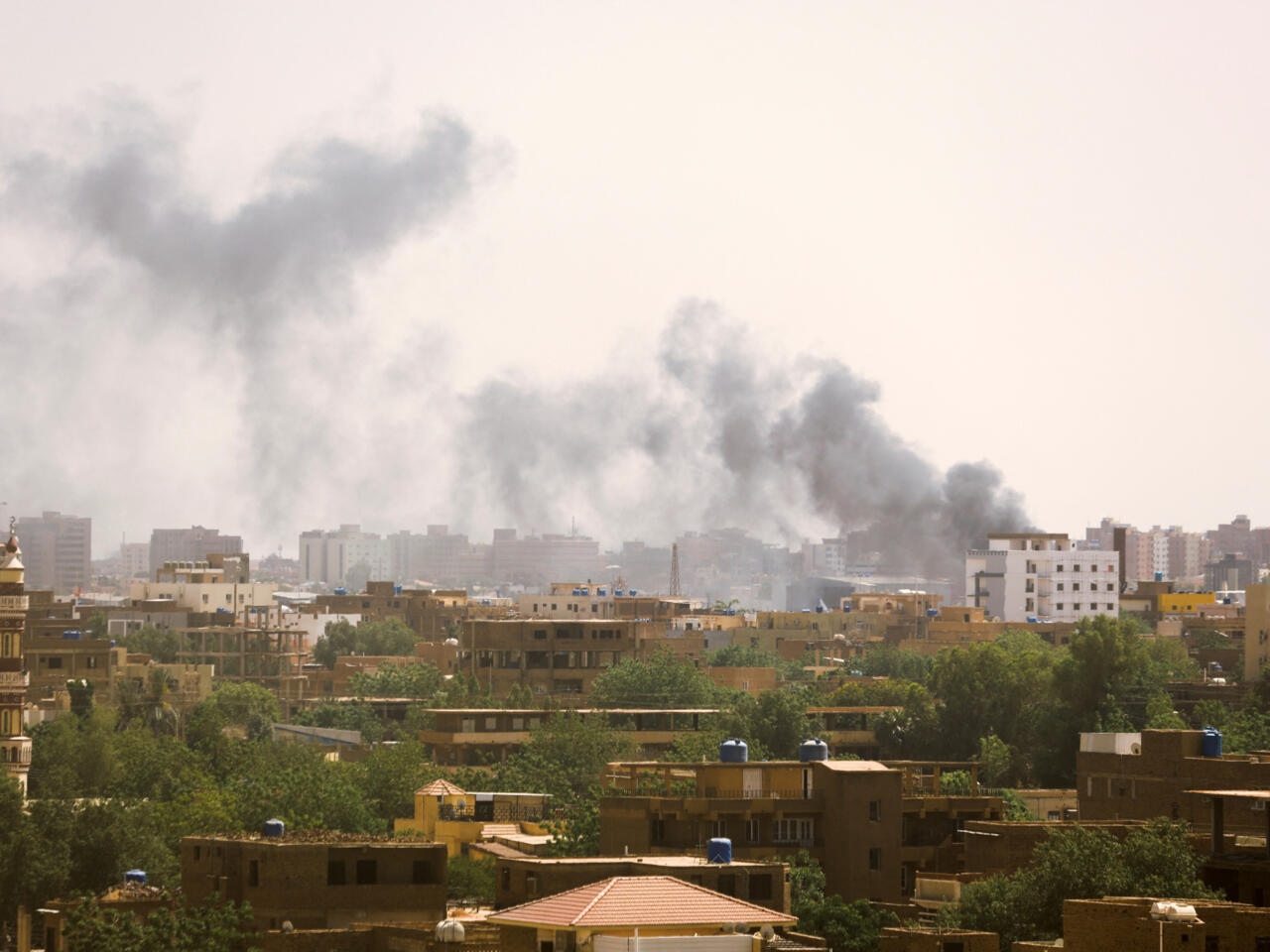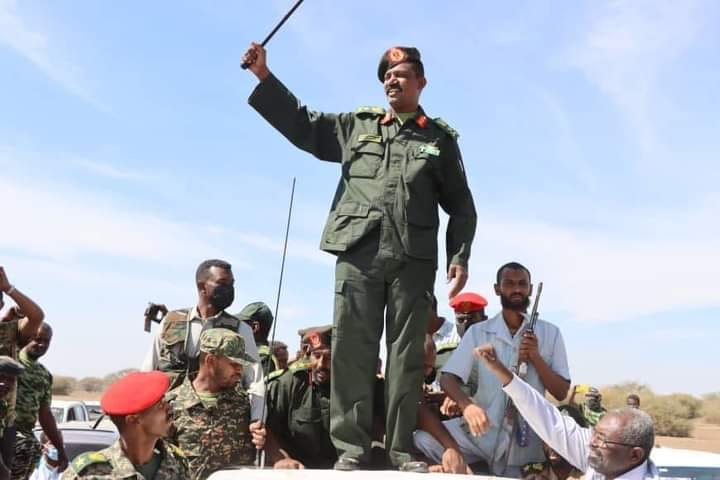The defection of Abu Aqla Kikal, a prominent commander of the paramilitary Rapid Support Forces (RSF) in Al Jazirah state, has sent ripples through Sudan’s volatile security landscape. His decision to join the Sudanese army, coupled with claims of betrayal, intelligence leaks, and violent confrontations, underscores the complex and ever-changing dynamics of the ongoing conflict. This defection marks a significant moment in Sudan’s fragile security situation, raising concerns about regional stability and the future of the RSF, an organization already marred by controversy and accusations of human rights abuses.
As the war between the Sudanese Armed Forces (SAF) and the RSF rages on, the defection of high-ranking officers like Kikal highlights the deep fractures within the RSF and points to broader security challenges that could have lasting consequences for the region. Both the RSF and the SAF are now locked in a struggle not just for territorial control, but for legitimacy, public support, and the loyalty of key military figures. The broader implications of this power struggle reach far beyond the borders of Sudan, potentially destabilizing the entire Horn of Africa.
The Defection of Abu Aqla Kikal
On Sunday, Abu Aqla Kikal, a high-ranking commander of the RSF in Al Jazirah state, defected to the Sudanese army, accepting an amnesty offer from the SAF’s commander-in-chief. The Sudanese army heralded the defection as a significant victory, a symbol of the crumbling morale within the RSF. However, the RSF leadership was quick to downplay the importance of Kikal’s departure, claiming he was under investigation for disobeying orders and suggesting that he fled to avoid facing the consequences of his actions.
Ibrahim Mukhtar, an advisor to the RSF commander, dismissed the idea that Kikal’s defection would impact the broader conflict, asserting that Kikal had no sensitive information and was left with only a small group of personal guards and a few soldiers. Despite these assurances, the fact remains that Kikal’s defection comes at a time of mounting pressure on the RSF, both from external military threats and internal dissent. The RSF’s claim that Kikal was “bought” by the Sudanese army further fuels speculation about disloyalty and division within the paramilitary force.
Security Implications for Al Jazirah and Beyond
Al Jazirah state has become a key battleground in the broader conflict between the SAF and the RSF. Following Kikal’s defection, fighting escalated in the Tambul area, with both sides claiming victory. The RSF reports that its forces successfully repelled a Sudanese army assault, killing over 200 soldiers and capturing significant military equipment, including 45 combat vehicles. These claims, while difficult to independently verify, illustrate the intense military engagements occurring across Sudan.
The defection and subsequent battle in Tambul also highlight the critical role that local commanders play in the overall security structure of the RSF. If further defections occur, the RSF could face a significant weakening of its operational capacity, especially in key regions like Al Jazirah. A destabilized RSF could lead to an increase in violent clashes and greater insecurity for civilians in the region, many of whom are already caught in the crossfire of this brutal conflict.
The SAF, on the other hand, sees defections like Kikal’s as an opportunity to strengthen its position both militarily and politically. By offering amnesty to RSF commanders willing to switch sides, the Sudanese army hopes to accelerate the disintegration of its paramilitary rival. However, the risk is that defections may lead to further fragmentation within both forces, complicating efforts to establish centralized control and prolonging the conflict.
The Regional Security Fallout
Sudan’s ongoing conflict is not an isolated crisis. Its instability has far-reaching consequences for the Horn of Africa and neighboring regions. The involvement of Abu Aqla Kikal and his subsequent defection to the SAF is a microcosm of a broader struggle for power that has drawn in external actors and threatens to destabilize an already volatile region.
The RSF’s origins lie in the Janjaweed militias that were active during the Darfur conflict, and the organization has since grown into a powerful paramilitary force with substantial influence in Sudanese politics. The RSF has been accused of numerous human rights violations, both in Darfur and elsewhere, and its involvement in the current conflict raises concerns about the security of civilians in areas under its control. Should the RSF fracture under the pressure of internal defections and military losses, it is likely that violence and instability will spread, exacerbating existing humanitarian crises.
Countries like Chad, South Sudan, and Ethiopia are particularly vulnerable to the spillover effects of the conflict. In Chad, which shares a porous border with Sudan, the influx of refugees and the presence of armed groups linked to the RSF has already created significant security challenges. South Sudan, still recovering from its civil war, faces the risk of renewed conflict as displaced populations and militias cross the border in search of resources and sanctuary. Ethiopia, which has only recently managed to de-escalate its internal conflict in the Tigray region, is wary of Sudan’s instability spilling over and reigniting tensions along its border.
The defection of military figures like Kikal also raises concerns about the involvement of external powers. The Sudanese army and the RSF have both been linked to various foreign backers, including regional powers like Egypt and the United Arab Emirates. The potential for these external actors to escalate their involvement—whether through military aid, political support, or economic investments—further complicates the security dynamics in Sudan and risks drawing the broader region into a protracted conflict.

Internal Dissent or Consolidation?
While the RSF leadership has downplayed the significance of Abu Aqla Kikal’s defection, it is clear that the paramilitary force is facing increasing internal challenges. Reports of Kikal’s interactions with leaders of Sudan’s dissolved National Congress Party, coupled with suspicions that he leaked information leading to the death of a key RSF commander in Blue Nile state, point to the possibility of broader dissent within the RSF ranks. Such defections and betrayals could prove to be the Achilles’ heel of the RSF, undermining its ability to project power and control over large swathes of territory.
At the same time, the RSF has shown resilience in the face of adversity. Following Kikal’s defection, the RSF quickly moved to appoint a new commander in Al Jazirah state and launched a counteroffensive to maintain control over strategic areas like Tambul. The RSF leadership has also implemented measures to close security gaps and prevent further defections, underscoring its determination to maintain cohesion and morale within its ranks.
However, the cracks in the RSF’s internal structure are becoming more apparent. If defections like Kikal’s continue, the RSF may find itself increasingly isolated and vulnerable to SAF advances. This, in turn, could accelerate the conflict’s trajectory toward a prolonged and bloody stalemate, with neither side able to achieve a decisive victory.
Civilian Impact and Humanitarian Concerns
The conflict between the SAF and the RSF has had devastating consequences for civilians across Sudan. In regions like Al Jazirah, where heavy fighting has taken place, civilians are often caught in the middle of the violence, facing threats from both sides. The defection of commanders like Kikal and the subsequent military engagements in places like Tambul only exacerbate these dangers, as both the SAF and the RSF have shown little regard for the protection of non-combatants in their pursuit of military objectives.
The humanitarian situation in Sudan continues to deteriorate. According to international aid organizations, millions of people require urgent assistance, with many facing food shortages, displacement, and limited access to medical care. The ongoing conflict has disrupted supply chains and destroyed infrastructure, making it difficult for aid to reach those in need. The defection of military leaders like Kikal does little to change this grim reality; if anything, it highlights the persistent instability and insecurity that continue to plague Sudan.
As the fighting drags on, international organizations and neighboring countries are grappling with the question of how to address the growing humanitarian crisis. While the Sudanese army’s efforts to weaken the RSF through defections may offer a glimmer of hope for an eventual end to the conflict, the immediate future remains bleak for the millions of civilians caught in the crossfire.
A Fragile Peace on the Horizon?
The defection of Abu Aqla Kikal from the RSF to the Sudanese army is just one event in a broader, more complex conflict that shows no signs of abating. As both the SAF and the RSF vie for control of Sudan’s future, the security situation remains precarious, with the potential for further violence and instability looming on the horizon.
For the region, the stakes are high. The conflict in Sudan has already begun to affect neighboring countries, and if the situation continues to deteriorate, it could trigger a wider regional crisis. The defection of military leaders like Kikal may signal a weakening of the RSF’s grip on power, but it also raises the specter of further fragmentation and disorder within Sudan’s armed groups.
Ultimately, the international community must grapple with how to respond to the escalating conflict in Sudan. While efforts to mediate a peaceful resolution have so far been unsuccessful, the defection of figures like Kikal could present an opportunity for dialogue and reconciliation—if the warring parties are willing to come to the negotiating table. Until then, Sudan remains locked in a dangerous and uncertain struggle for its future.



